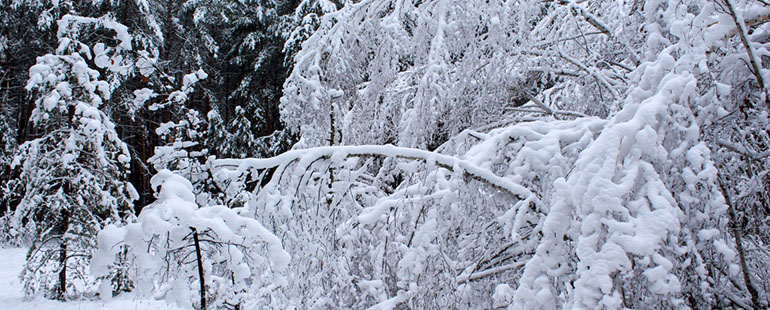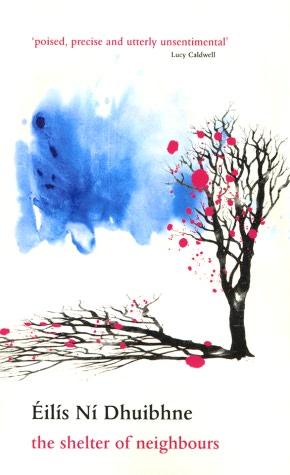Three Poems of Ordinary Exuberance for Uncertain Times

As the news became bleak and panicked amidst the increasingly serious COVID-19 outbreak last week, I wanted to forget about everything. I started craving the glitzy pop songs of my adolescence and the reassuring rhythms of the girl-power comedies I’d grown up with. But the longer I stayed inside, practicing social distancing as recommended by the U.S. Centers for Disease Control and Prevention, the more I wanted not to feel as if I were shutting things out, closing myself off. I began to seek out simple, nourishing things. I made nondescript meals from the staples I’d bought alongside the other silent, singularly focused shoppers at the supermarket. And I read poems that take delight in the everyday: Eileen Myles’ “Peanut Butter,” Jane Hirshfield’s “My Species,” and Robert Frost’s “Birches.” Each uses plainspoken vocabulary and domestic imagery to branch outwards towards life’s most urgent questions; each poem locates itself in small, particular moments of bliss and wonder. Though the three poems produce a similar effect—a sense of deep exuberance—each uses a particular structure and tone to bring the reader to a place of joy and tentative hope.
Hirshfield’s “My Species” is the shortest of the three, with only twelve verses. Some of these verses consist of only one word. The poem centers on a single image: a boiling artichoke. The first stanza is vivid and literal, and brings a quotidian experience to life without using many words:
even
a small purple artichoke
boiled
in its own bittered
and darkening
waters
grows tender,
grows tender and sweet
The language juxtaposes familiarity and menace. By choosing to offset words like “boiled,” “waters,” and “darkening” in their own verses, everyday vocabulary takes on sinister undertones. The image of a “purple artichoke” boiling in waters that it has “bittered” is at once literally descriptive and symbolically evocative. It’s an augur of despair and helplessness that’s reversed in the last two verses of the stanza. The literal outcome of the boiling artichoke, of course, is that it transforms it into something edible, “tender and sweet.” The repetition of the verb “grows,” similarly, acts as an antidote to the stanza’s other, more threatening verb, “boiled.” The repetition of “tender” is a relief after the dark, uneasy language at the poem’s beginning.
In the poem’s final stanzas, the literal becomes metaphorical, and the previously unpeopled poem transforms into a sort of humanist call for compassion and action: “patience, I think, / my species // keep testing the spiny leaves // the spiny heart.” This macroscopic address is made poignant not by the vast ambition of speaking to an entire species, but instead by the meticulous unraveling of the domestic image with which the poem begins and which gives the final stanzas their understated power.
Frost’s “Birches” begins in a similarly unpeopled way: the speaker walks through woods, observing birch trees bowed by ice. Unlike Hirshfield, however, Frost imagines people in the deserted landscape almost immediately. The poem begins: “When I see birches bend to left and right / Across the lines of straighter darker trees, / I like to think some boy’s been swinging them.” The speaker addresses a “you” and admits the truth: that the birches are bowed because of an ice storm, and likely to stay that way even when the sun comes out and melts the ice. Frost’s description of this thaw is full of almost apocalyptic language of collapse: “Soon the sun’s warmth makes them shed crystal shells / Shattering and avalanching on the snow-crust— / Such heaps of broken glass to sweep away / You’d think the inner dome of heaven had fallen.” The remainder of the poem mixes the speaker’s fantasies with the reality of the situation. He knows the bows are bent from an ice storm, but still wishes the bent branches were the work of some anonymous child, climbing the tree and playing in the snow. The speaker admits that he himself played this game as a child:
So was I once myself a swinger of birches.
And so I dream of going back to be.
It’s when I’m weary of considerations,
And life is too much like a pathless wood
Where your face burns and tickles with the cobwebs
Broken across it.
The speaker then uses this literal, nostalgic image of birch swinging to voice a somewhat more abstract, almost metaphysical desire:
I’d like to get away from earth awhile
And then come back to it and begin over.
May no fate willfully misunderstand me
And half grant what I wish and snatch me away
Not to return. Earth’s the right place for love:
I don’t know where it’s likely to go better.
It’s a particular wish, parallel to the one voiced in the previous stanza. Both stanzas express a desire to return to a joyful experience. Initially the speaker is nostalgic for an uncomplicated, playful childhood, but in the verses above, he seems to develop nostalgia for the present moment—he wants to get away and come back right to where he is. If the yearning for return to childhood is individual, the yearning to continue to love on Earth is, like Hirshfield’s invocation of her “species,” very expansive. In Frost’s poem, it’s the simple universality of this declaration that makes it so affecting, as well as the speaker’s individual admission, slightly tongue-in-cheek, that he doesn’t “know where it’s likely to go better.” It’s a frank, emotional reckoning with the flawed present. The speaker sees Earth, and its flaws, and wants desperately to return all the same.
Eileen Myles’ “Peanut Butter” is an exuberant ode to presence, and pleasure—particularly of the immediate, physical kind. The poem begins with the playful, ravenous lines: “I am always hungry / & wanting to have / sex.” The speaker indulges in a no-nonsense nostalgia; like Frost’s speaker, Myles’ acknowledges the role of repetition and return as a way of accessing pleasure:
And
I am an enemy
of change, as
you know. All
the things I
embrace as new
are in
fact old things,
re-released.
The list of “old things, / re-released” itself includes repetition and return. On the list—after “swimming” and “being dirty in / body and mind”—is:
Pleasure
as a means,
and then a
means again
with no ends
in sight.
The speaker’s refusal of deadlines, timelines, and changes brings on the giddy feeling of an eternal present. The poem evokes the opposite of stasis—the speaker’s “opposition / to all kinds of / goals” feels like the antithesis of passivity, depression, or resignation. Instead the speaker also refuses hierarchies, and invents a playful, individual way of relating to the world. The language is lively, winking at the reader:
I have
no desire to know
where this, anything
is getting me.
When the water
boils I get
a cup of tea.
Accidentally I
read all the
works of Proust.
It was summer
I was there
so was he.
In this absence of striving, of expectation, of control, the speaker is passionate and present. They speak about their lover with the joy of someone who is with the person they’ve been chasing, but who acknowledges the lovely unpredictability that exists even in mutual possession:
Nature
is out of control
you tell me &
that’s what’s so
good about
it.
The speaker describes the lover’s “new / white hair” and declares:
why shouldn’t
something
I have always
known be the
very best there
is.
These verses echo Frost’s “Earth’s the right place for love” in their commitment to the everyday exuberances that make up the best parts of life. The lines are brief and breathless, and followed by a sketch of childhood, “when / one day was / just like the / rest, random / growth and / breezes.” Longing for the ordinary, the poem suggests, isn’t nostalgic self-indulgence. It’s sexy and enlivening, and the “best there / is.”
Each poem suggests a reverence for the smallest details of the present moment—the boiling artichoke, the bent tree boughs, the white hair of a beloved. No matter how improbable it seems, we can return to these routine pleasures again and again, and still they might have as much power over us as whatever’s happening in the wider, changing world.


